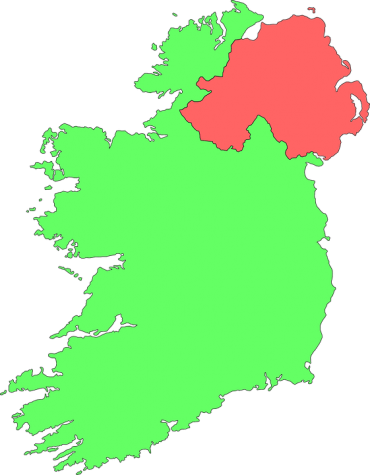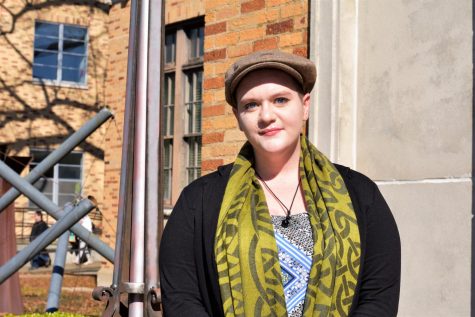Northern Ireland: Past and Present Politics
If one was to visit Northern Ireland today, they would find tour buses driving along the coast showing film locations for “Game of Thrones,” tours going through Belfast, friendly people along the main streets, and shops full of business.
If one was to visit Northern Ireland even 10 to 15 years ago, they would have found themselves in a country war-torn, and people finding any way they could to leave Belfast far behind.

Northern Ireland has a long history of being politically and religiously divided, the two conflicts tying into each other. Catholics and Protestants have long been against each other, escalating when Ireland split into two countries: Northern Ireland and the Republic of Ireland. Northern Ireland was dominantly Protestant, loyal to the Queen of England. The Republic of Ireland was dominantly Catholic, in favor of home-rule, or being independent.
Even though Northern Ireland was dominantly Protestant, there were still a good portion of Catholics in the country. They still supported having one united, independent Ireland. The Irish Republic Army (IRA) was a paramilitary organization that fought for this cause.
Though the IRA are more known for it, both sides of the conflict are responsible for the deaths and destruction of many people and places within Northern Ireland. Even decades later, people grieve the loss of loved ones in bombings and conflicts between the two sides.
When the Good Friday Agreement was settled in 1998, the violence began to slow. The extremists who wanted a united Ireland began to enter the political field under the party of Sinn Féin. This party advocated many issues that seemed reasonable along with a united Ireland, resurgence of the Gaelic language, and healthcare revisions as some of their more prominent causes.
As it was explained to me by a collective of politicians in Northern Ireland, the government today consists of politicians from different political parties: Sinn Féin and the Democratic Unionist Party (DUP), which are the two major parties (like the Democrats and Republicans in the United States). These parties must agree on issues to pass laws.
Consequently, Northern Ireland is currently without a government; they have been without a government for a year now. There is one law in particular that has this government in a stalemate. Sinn Féin wants to pass an Irish Language Act that enforces the people to learn the Irish language. The DUP is against this act, as are many people of the country.
English is the national language of the country. Only a small portion of the population claim to be fluent in the Irish language and even fewer truly are. The majority of the population have no desire to learn the language and do not want to be made to learn it.
This issue is one that the party of Sinn Féin has fought for since before they became part of the political climate. It is an issue they seem unwilling to compromise or give up.
The younger generation that did not live through the Troubles have no interest in the divide between the population. A younger waiter in the hotel I stayed in stated, “My motto is that the past is in the past. We should move on and live as one nation, one people.”
It is yet to be seen when the government of Northern Ireland will move past this issue to come back into functionality. The issue of how Brexit will affect the country is also yet to be seen, especially with this stalemate.

Kjirsten Whitsell is a senior here at Delta State University. She has been a part of The Delta Statement for three semesters. Kjirsten’s hometown is...


